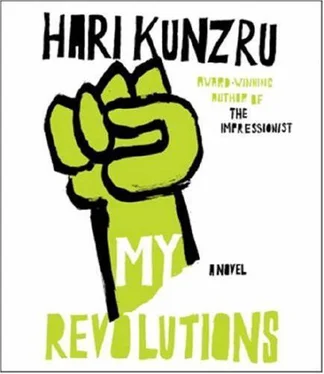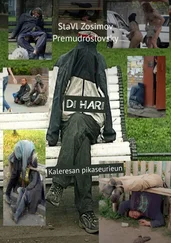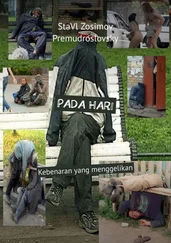“No.”
“I think it’s time you did.”
“Don’t fucking tell me what it is or isn’t time to do. It’s my life. My life , Miles. We’ve been together sixteen years. What do I have other than her and Sam? Fuck all, that’s what. They’re my life and the person who has that life is Mike Frame.”
He slammed his palm down on the table, making the coffee cups rattle. He looked exasperated. “God, you make it fucking difficult, don’t you? Think! Use your head! You don’t have a choice about whether this is coming out. One way or the other it’s going to happen. Your only choice is how it comes out. I’m asking you to think of your family. Make it easy for them, if you can’t for yourself.”
We’d been raising our voices. The girl behind the counter was glancing around nervously, as if wondering whether she’d have to intervene.
“I’m going now.” I got up and walked out, cutting across the street and weaving through the Saturday shopping crowds. I didn’t look behind but I knew Miles was following me. I could hear the sharp reports of his shoes on the flagstones. Metal heel protectors. What did we call them when I was a kid? Blakeys. He was wearing blakeys.
“Chris, stop.”
“Mike. I’m Mike, all right? Michael Frame.”
“It’s over, Chris. All that’s over. I told you Pat Ellis has decided to fight. Apparently she’s contacted the police about you. She’s made it official, so that if she’s challenged she can say she took immediate action. They’re circulating your old pictures.”
* * *
Shoot the messenger. That was it, partly. But there was also a deeper question, one of trust. I didn’t blame them for their paranoia. I’d have been just as suspicious. I was cadre. I was supposed to be disciplined. Without warning I’d disappeared for a weekend, gone completely off the map. Then I’d come back with a story about Wales and Miles Bridgeman, who everyone already suspected was an informer. It was never going to look right.
There was a meeting. Hostile faces, searching looks. I was left in a room on my own and when they came back, they told me — or, rather, Anna told me, using her coldest and most impersonal tone— that Leo and Jay would take the train with me to Manchester, where we had a flat we’d kept empty for emergencies. We should phone in every day. We should wait for instructions.
Whether or not I’d been believed, my news precipitated a group transformation, a sudden shedding of skin. For some time we’d been laying paper trails around our new identities, breathing life into birth certificates and library cards and utility bills and fake letters of reference. We’d all practiced changing our appearance. It was time to break with the past, to go completely underground.
From that day on my name was Michael Frame. I practiced it. If Michael Frame was walking down the street and someone called out, he should turn round instantly, without hesitating. Michael Frame had short hair and a neatly trimmed moustache. He had no connection with politics of any kind. I rehearsed the names of his mother and father, his date of birth.
On the journey north, Leo and Jay behaved more like guards than comrades. I couldn’t buy a newspaper at a kiosk or walk through the train to the buffet car without one of them accompanying me.
We didn’t talk much. They both had trouble meeting my eye. I knew Leo was armed and that made me afraid.
The Manchester flat was on the sixteenth floor of a system-built block in Rusholme. It was almost bare of furniture, just a couple of mattresses and a little black-and-white telly balanced on an orange crate by the heater. We stayed there for almost two weeks, playing cards, smoking endless cigarettes. The weather was filthy. Wind drove dirty sleet against the windows. Once in a while the sun appeared, a bilious pale yellow ball like the yolk of a battery farm egg. If it hung around for more than an hour or two in the morning, it turned the treacherous film of ice on the pavement into a nasty gray slush.
A strike was on, so there were power cuts. When night fell, its reign was absolute. In the stairwell of Arkwright House, bobbing flashlight beams; dishes of melted candlewax on the kitchen counter. Sixteen floors up and the elevators didn’t work. Sixteen floors with crappy plastic shopping bags, which sagged and tore, sending cans and bottles crashing down the hard steps. When the wind was strong, rushing through the gaps between Arkwright and Stephenson and Cobden, the three towers groaned in pain.
One evening as I climbed the stairs with Jay, my pocket flashlight lit up an old man clinging to the handrail. He was like a ghost from the industrial past: flat cap, scarf knotted round his neck, his jacket unbuttoned to reveal a woollen undershirt tucked into a pair of greasy trousers. He was in a bad way, breathing heavily, the sweat pouring down his unshaven cheeks. When I asked if he was all right he mutely shook his head. “It’s Mary,” he said, expelling the words with great effort, through a curtain of phlegm.
George was probably in his sixties but work had aged him brutally, scooping out his face and clogging his lungs with cotton dust. In August his wife had slipped and fallen; now she was too frail to leave the flat. For the last couple of days she hadn’t stopped shivering, so he’d put on his shoes and gone downstairs to fetch a doctor. It had taken him the best part of an hour to make it as far as the seventh floor. We sat with him for a while, and when we
realized his asthma wasn’t getting any better, Jay went back down to the pay phones in the hall to call an ambulance. Half an hour, they said. They’d had a lot of calls. I told George they were on their way and went to check on his wife.
“Don’t frighten her,” he pleaded. “Sing out before you go in, else she’ll think you’re a burglar.”
Up on the fourteenth floor, I knocked on the door and called through the letterbox. George couldn’t remember if he’d locked up so he’d given me his key. Still calling out, I went inside. The flat smelled of bacon fat and was as cold as a tomb. The flashlight picked up patches of damp, a shelf of dusty china birds, an armchair with a stack of Reader’s Digest magazines balanced on a footstool beside it. I found Mary bundled up in bed, her eyes shut and her mouth hanging open, a little gray-faced figure with a tuft of thin hair plastered across her scalp. The bedroom stank of stale urine. I wondered if she was already dead.
“Mary, I’m a neighbor. George sent me to see how you were.”
She moaned. I couldn’t tell if she was aware of me, but at least she was alive. My foot hit an overflowing chamber pot, sitting out on the rug by the bed; I tried to master an overpowering sense of disgust. How had they been left like this? Who was supposed to be looking after them? Eventually the ambulance men came; Jay and I made ourselves scarce. We stood on the landing, just out of sight, listening to them cursing and swearing as they carried Mary down the stairs. I expect it was the smell, rather than the weight. She must have been as light as a bird.
The next day I took George a bag of necessities: candles, toilet paper, cans of food. He was too proud to admit it, but there were obviously days when he and Mary ate nothing at all, when their pension money had run out or they hadn’t been able to make it to the shops. I sat in the armchair and he shuffled around, making a slow motion cup of tea. I listened to his labored breathing, the squeak of his cane on the kitchen linoleum. It made me feel ordinary, human. I remember it as the one decent moment of my time in Manchester.
When I went back upstairs after taking George his food, Leo
thrust a newspaper into my hand. Across the front page was
Читать дальше












